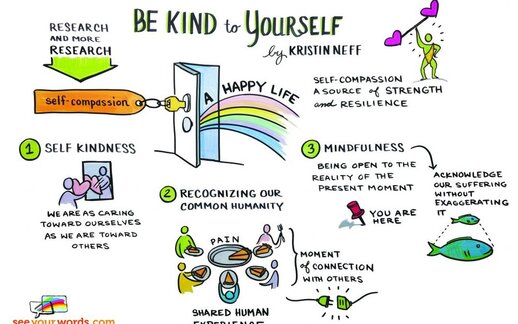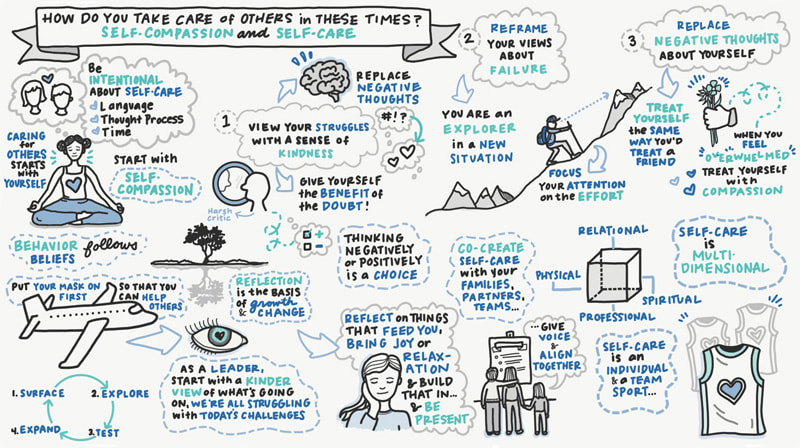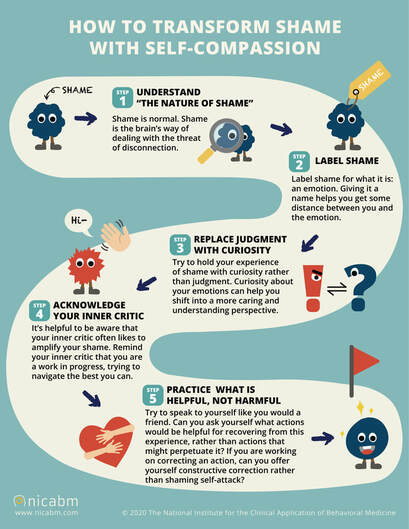|
Self-Compassion is the ability to extend kindness and compassion to oneself. Just as we show compassion to others who experience rough times and give them the space and time to grieve, make mistakes, or feel their feelings, we should be doing the same for ourselves. Sometimes we are most critical and hard on ourselves than we are on others.
According to Dr. Kristin Neff, there are three elements of self-compassion: 1. Self-Kindness vs. Self-Judgment "Self-compassionate people recognize that being imperfect, failing, and experiencing life difficulties is inevitable, so they tend to be gentle with themselves when confronted with painful experiences rather than getting angry when life falls short of set ideals." 2. Common humanity vs. Isolation "The very definition of being “human” means that one is mortal, vulnerable and imperfect. Therefore, self-compassion involves recognizing that suffering and personal inadequacy is part of the shared human experience – something that we all go through rather than being something that happens to “me” alone." 3. Mindfulness vs. Over-identification "Mindfulness is a non-judgmental, receptive mind state in which one observes thoughts and feelings as they are, without trying to suppress or deny them. We cannot ignore our pain and feel compassion for it at the same time. At the same time, mindfulness requires that we not be “over-identified” with thoughts and feelings, so that we are caught up and swept away by negative reactivity." Below are resources about Self-Compassion: Self-Compassion Flocabulary Lesson Self-Compassion: Be Kind to Yourself Lesson Social and Emotional Curriculum: Compassion in Action 6 Science-Based Self-Compassion Exercises The 5 Myths of Self-Compassion The Transformative Effects of Mindful Self-Compassion
0 Comments
Leave a Reply. |
AuthorWrite something about yourself. No need to be fancy, just an overview. Archives
June 2022
Categories |




 RSS Feed
RSS Feed